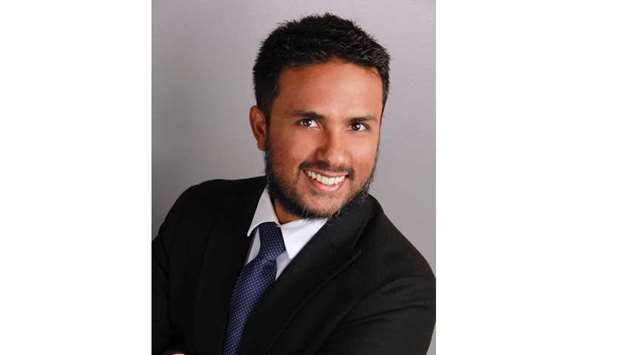Hundreds of Muslims rush to mosques across Qatar to join prayers during Ramadan, especially during the last 10 days of the holy month when special late night prayers are held. It’s hard to miss the cars parked on the pavements and road sides in front of every mosque, and worshippers that often spill into streets due to the overflow in mosques, especially during Friday prayers.
The fact is that the number of worshippers in mosques is far larger in Ramadan in Qatar than any other month of the year because for Muslims, it is the month of spiritual reflection. The reward for every prayer is also far greater and so Muslims put extra effort in their devotion and worship while fasting. These changes are in plain sight in a country like Qatar in Ramadan because the entire country lights up and the teachings of Islam are upheld in private and public spheres by many.
Wasif Khan – a teacher and a Khatib based in Dallas often visits Qatar but this year he spent his first Ramadan here.
“We’ve been primarily praying at the Education City Mosque. There is a good mix of community present at the mosque, with many families who come together for prayers and Taraweeh. The mosque has a very inviting atmosphere, they have different programmes such as Qur’an competitions, a kid’s corner, and then there are the community Iftar and Suhoor. And most importantly, the recitation of the Qur’an is beautiful,” says Khan.
He believes that the increase in visitors of mosques is one of the beauties of Ramadan as it brings families and communities together.
“Crowds in Ramadan are far greater in the mosques compared to the rest of the year. The number of people visiting the mosque has increased during the last 10 days of Ramadan. Many people come for the late night prayers, and they have Suhoor together,” he explains.
Some Muslims devote the last 10 days of Ramadan for Itikaf, which means that they sit in isolation in mosque or at home with the intention of solely dedicating their time to the worship of Allah.
Khan has two siblings settled in Qatar who he frequently visits. This was the first time he spent Ramadan in a Muslim country and he says that the difference in observing Ramadan in Qatar and the US is almost shocking.
“In the US, you have music in the malls regardless of whether it’s Ramadan or not. But here in the malls, you see people carrying around a tasbeeh (beads of prayer) and you are reminded of zikr (remembrance of Allah). When you come from the West and compare the environments, it almost comes as a shock. The entire society moves in line with the principles Islam upholds. You hear the call to prayer in the malls and in your homes. There is a constant reminder for prayers and so it’s a paradigm shift.”
Khan is a digital systems and marketing expert by profession, and says he often meets people who enquire about different aspects of faith and religion.
“When it comes to deen (faith), people often ask, what is the bare minimum we can do? They say ‘I pray five times a day and I fast’ and so isn’t that enough? That’s the kind of mind-set I constantly come across. But the idea is to constantly push yourself to do more. Laylatul Qadr is the night where next year’s decree is sent out, apart from its many rewards. So the attitude should be to do as much you can,” Khan argues.
In Islam, Laylatul Qadr, also known as the Night of Decree or the Night of Power, is the holiest day of the year. It is the night when the first verses of the Holy Qur’an were revealed to the Prophet Muhammad (PBUH). It is one of the nights of the last ten days of Ramadan. Some scholars define ‘Qadr’ in the context of ‘destiny or decree’ (qadar). To them, this means that this is the night in which the destiny of each person is decided. It would be this night in which a person’s sustenance, lifespan, and other critical matters would be sealed for the coming year.
Consequently, any prayers held on this night such as reciting the Qur’an and remembering Allah is considered better than acting for one thousand months which do not contain the night of Qadr.
Khan says that he is thinking about relocating from Dallas to Qatar because of the unique atmosphere of the country and the beauty of celebrating Ramadan in a Muslim country like Qatar.
“If you compare Qatar with the rest of the countries in the Middle East, you will see that Qatar has a different and a unique feel to it. There is a special focus on education, and people value educatin and progress. Also, for many of us living in the West, Qatari leadership and its approach in the aftermath of the June 5 blockade was astonishing. There was integrity and maturity with which Qatar handled the crisis and it was extremely impressive.”

u201cIn the US, you have music in the malls regardless of whether it’s Ramadan or not. But here in the malls, you see people carrying around a tasbeeh (prayer beads) and you are reminded of zikr (remembrance of Allah)u201d u2014 Wasif Khan
